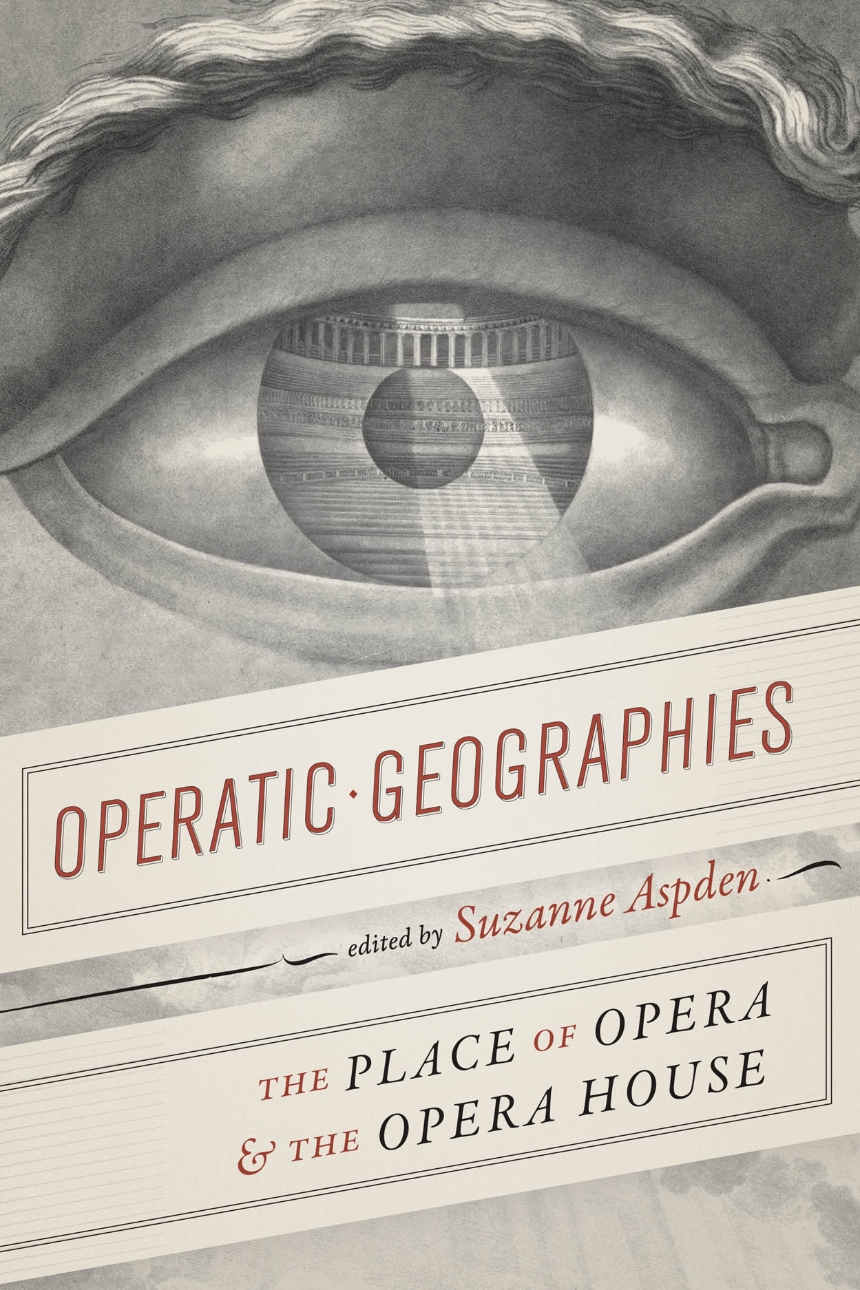Operatic Geographies
The Place of Opera and the Opera House
9780226596013
9780226595962
9780226596150
Operatic Geographies
The Place of Opera and the Opera House
Since its origin, opera has been identified with the performance and negotiation of power. Once theaters specifically for opera were established, that connection was expressed in the design and situation of the buildings themselves, as much as through the content of operatic works. Yet the importance of the opera house’s physical situation, and the ways in which opera and the opera house have shaped each other, have seldom been treated as topics worthy of examination.
Operatic Geographies invites us to reconsider the opera house’s spatial production. Looking at opera through the lens of cultural geography, this anthology rethinks the opera house’s landscape, not as a static backdrop, but as an expression of territoriality. The essays in this anthology consider moments across the history of the genre, and across a range of geographical contexts—from the urban to the suburban to the rural, and from the “Old” world to the “New.” One of the book’s most novel approaches is to consider interactions between opera and its environments—that is, both in the domain of the traditional opera house and in less visible, more peripheral spaces, from girls’ schools in late seventeenth-century England, to the temporary arrangements of touring operatic troupes in nineteenth-century Calcutta, to rural, open-air theaters in early twentieth-century France. The essays throughout Operatic Geographies powerfully illustrate how opera’s spatial production informs the historical development of its social, cultural, and political functions.
Operatic Geographies invites us to reconsider the opera house’s spatial production. Looking at opera through the lens of cultural geography, this anthology rethinks the opera house’s landscape, not as a static backdrop, but as an expression of territoriality. The essays in this anthology consider moments across the history of the genre, and across a range of geographical contexts—from the urban to the suburban to the rural, and from the “Old” world to the “New.” One of the book’s most novel approaches is to consider interactions between opera and its environments—that is, both in the domain of the traditional opera house and in less visible, more peripheral spaces, from girls’ schools in late seventeenth-century England, to the temporary arrangements of touring operatic troupes in nineteenth-century Calcutta, to rural, open-air theaters in early twentieth-century France. The essays throughout Operatic Geographies powerfully illustrate how opera’s spatial production informs the historical development of its social, cultural, and political functions.
320 pages | 39 halftones | 6 x 9 | © 2019
Geography: Cultural and Historical Geography
Music: General Music
Reviews
Table of Contents
1 Introduction: Opera and the (Urban) Geography of Culture
Suzanne Aspden
2 The Legal Spaces of Opera in The Hague
Rebekah Ahrendt
3 Opera at School: Mapping the Cultural Geography of Schoolgirl Performance
Amanda Eubanks Winkler
4 London’s Opera House in the Urban Landscape
Michael Burden
5 Opera and the Carnival Entertainment Package in Eighteenth-Century Turin
Margaret Butler
6 Cockney Masquerades: Tom and Jerry and Don Giovanni in 1820s London
Jonathan Hicks
7 The City Onstage: Re-Presenting Venice in Italian Opera
Susan Rutherford
8 Between the Frontier and the French Quarter: Operatic Travel Writing and Nineteenth-Century New Orleans
Charlotte Bentley
9 L’italiana in Calcutta
Benjamin Walton
10 Thomas Quinlan (1881–1951) and His “All-Red” Opera Tours, 1912 and 1913
Kerry Murphy
11 Empires in Rivalry: Opera Concerts and Foreign Territoriality in Shanghai, 1930–1945
Yvonne Liao
12 “Come to the Mirror!” Phantoms of the Opera—Staging the City
Peter Franklin
13 Open-Air Opera and Southern French Difference at the Turn of the Twentieth Century
Katharine Ellis
14 Pastoral Retreats: Playing at Arcadia in Modern Britain
Suzanne Aspden
15 The Opera House as Urban Exhibition Space
Klaus van den Berg
16 Underground in Buenos Aires: A Chamber Opera at the Teatro Colón
Roberto Ignacio Díaz
Acknowledgments
Contributors
Notes
Index
Suzanne Aspden
2 The Legal Spaces of Opera in The Hague
Rebekah Ahrendt
3 Opera at School: Mapping the Cultural Geography of Schoolgirl Performance
Amanda Eubanks Winkler
4 London’s Opera House in the Urban Landscape
Michael Burden
5 Opera and the Carnival Entertainment Package in Eighteenth-Century Turin
Margaret Butler
6 Cockney Masquerades: Tom and Jerry and Don Giovanni in 1820s London
Jonathan Hicks
7 The City Onstage: Re-Presenting Venice in Italian Opera
Susan Rutherford
8 Between the Frontier and the French Quarter: Operatic Travel Writing and Nineteenth-Century New Orleans
Charlotte Bentley
9 L’italiana in Calcutta
Benjamin Walton
10 Thomas Quinlan (1881–1951) and His “All-Red” Opera Tours, 1912 and 1913
Kerry Murphy
11 Empires in Rivalry: Opera Concerts and Foreign Territoriality in Shanghai, 1930–1945
Yvonne Liao
12 “Come to the Mirror!” Phantoms of the Opera—Staging the City
Peter Franklin
13 Open-Air Opera and Southern French Difference at the Turn of the Twentieth Century
Katharine Ellis
14 Pastoral Retreats: Playing at Arcadia in Modern Britain
Suzanne Aspden
15 The Opera House as Urban Exhibition Space
Klaus van den Berg
16 Underground in Buenos Aires: A Chamber Opera at the Teatro Colón
Roberto Ignacio Díaz
Acknowledgments
Contributors
Notes
Index
